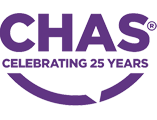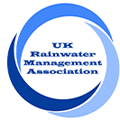Reliance on Water Reuse to grow amid new water deficit predictions
09/04/2024

09/04/2024
Water Reuse, the term covering both rainwater harvesting and greywater recycling, is being used more frequently within the built environment sector as legislators, contractors, and water supply companies prepare for increased reliance on water recycling technologies amid growing water demand estimates over the next 25 years.
Water is often overlooked as a precious resource here in the UK as misconceptions surrounding the availability of public water supplies exist. This misconception is worsened by the comparatively low cost of water when considered against gas and electricity prices or equivalent water rates in European countries.
In updated Water Resource Management Plans (WRMP’s) published by the UK Government, increased deficits for water supplies in England are forecasted to reach 5 billion litres per day over the next 25 years. This deficit is up from the previously quoted 4 billion litres per day.
But what does a water deficit really mean?
A water deficit is essentially where the volume of available public water supplies is outstripped by the total demand for water. This accounts for the water we use both at home and in industry.
Concerns around water scarcity are growing due to the impacts of climate change producing longer, drier drought conditions during summer periods and increasingly unpredictable rainfall events in the UK throughout the year. The problem is worsened by the continued development of new homes and non-household properties which are all placing additional demand on aging water supply and drainage infrastructure.
As part of the recently published proposals, planners are aiming to find 48% of the additional water demand through increased water efficiency efforts. The remaining 52% will be sourced through new supplies, such as reservoirs. The Environment Act 2021 sets out the following targets for reduction, which come via the WRMP’s produced for each region by the Water Companies.

Water Reuse offers the benefit of utilising a resource that is readily available on site and is otherwise wasted by being sent straight to the drain. By installing dual pipe infrastructure within new buildings, the recycling of rainwater and wastewater from showers, handwash basins, and bathtubs (bathroom greywater), can be achieved to provide a non-potable water management strategy in the building. It also allows water reuse systems to be retrofitted a later date, if not installed at new build stage. Greywater and rainwater recycling technologies can be used for a range of non-potable applications, including toilet flushing, irrigation, laundry and vehicle washdown.
Businesses and homeowners can rely on water reuse technologies to achieve greater water efficiency. While other water-saving technologies are available on the market, these are often made up of water-reducing fixtures, such as aerated showers and air-assisted toilets. Experience has shown that these are often not monitored and are frequently swapped for higher water using alternatives; whereas water reuse systems are a large piece of physical infrastructure that cannot be altered by untrained tradespeople.
Monitoring of Stormsaver’s active rainwater harvesting and greywater recycling systems across the UK shows an average water saving of 75% in non-household properties and 55% in household properties. These sites collectively contribute to nearly 7 billion litres of water savings per year. Take a look at some of our most successful water-saving projects here.
In response to the growing utilisation of localised rainwater harvesting and greywater recycling systems in non-household and household properties, the Drinking Water Inspectorate (DWI) recently published a report to address the considerations of such dual pipework systems in the future. The report aims to ensure the widespread application of the technologies is implemented safely to protect the integrity of the traditional public water supply.
It is no secret that both rainwater harvesting and greywater recycling technologies require ongoing maintenance to ensure safe and efficient operation. In non-household properties, maintenance of these systems is often the responsibility of a professional facilities manager who entrusts experienced professionals like Stormsaver to carry out servicing, remedial, and replacement works as needed. This approach ensures that experienced, trained experts are entrusted with looking after the system rather than less experienced tradespeople.
Traditionally, rainwater harvesting and greywater recycling in household properties have been achieved via individual plot systems. The best practice position on this has recently changed as the industry now favours communal rainwater harvesting and greywater systems. Such communal systems allow the management and maintenance of such systems to be completed by a professional maintenance company rather than the responsibility falling with the homeowner.
Learn more about the maintenance requirements here.
Reputable systems produced by experienced manufacturers will have many fail-safe features to prevent the risk of cross-contamination. You should expect full guidance through the installation process and commissioning to ensure that the system is working as intended and that all legislative requirements have been met.
Communal-based systems offer greater resilience against cross-contamination with the public water supply as all internal components are removed from within the home; therefore, removing the risk of untrained tradesmen altering the system’s operation. Likewise, on non-household systems, components are usually located in a locked plant room which can only be accessed by trained engineering personnel.
The future use of rainwater and greywater recycling is going to become even more crucial in facilitating the continued expansion of the built environment whilst preserving public water supplies. Many years of research by manufacturers, WaterWise, and the UK Rainwater Management Association have proven that safe, long-term, and cost-effective implementation of such technologies is not only possible but crucial for our water supplies.
Stormsaver are the UK’s market leading water reuse specialists and a proud supplier of our own UK manufactured systems. Learn more about our rainwater harvesting or greywater recycling systems or contact our team here.

My role as a Water Reuse Specialist means I get to keep up to date with all things water conservation. My favourite water saving tip is to turn taps off when brushing your teeth! I think rainwater harvesting and the water reuse industry is exciting, and I love sharing updates with our customers. View Matt’s Stormsaver profile here.
Privacy Policy Cookie Policy Site Map
Copyright © 2025 Stormsaver Ltd. All Rights Reserved.






